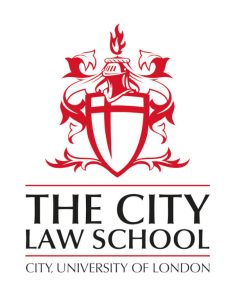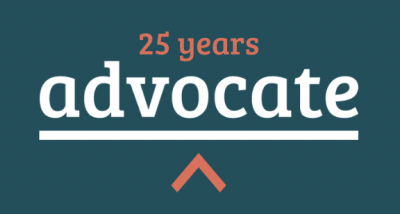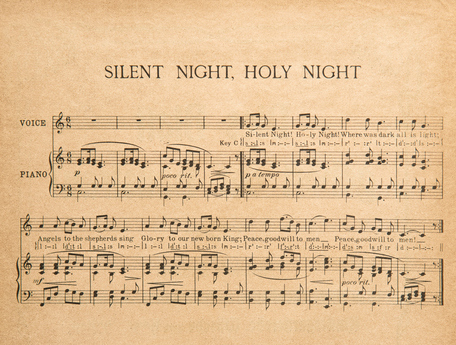The Lawbore Practitioner interview: Barrister Ross Beaton (7BR)

Zoe Wheeler, LLB2 student at City and member of the Lawbore journalist team, was keen to get involved in interviewing alumni and this is the first of her pieces in this series. Find out what happened when she met Ross…
Ross Beaton is an experienced barrister at 7BR who specialises in civil law with a focus on employment matters, clinical negligence/personal injury (including abuse), and inquests. He completed his GDL at City Law School in 2012. In addition to his work in Chambers, Ross is also committed to pro bono work with various charities and reviews cases for Advocate.
He was kind enough to take time out of his day to tell me about his experiences and provide insight on life as a practicing barrister. A synopsis of our conversation went as follows:
I see you studied a number of subjects (Philosophy & French, History & Theory of Politics, International Relations and Affairs) before deciding to do the GDL at City. What inspired you to study law and ultimately go into that field?
00I enjoyed studying and after completing my undergrad wanted to continue doing so. While I was contemplating what I wanted to do as a career, I saw a friend of mine become a barrister. I also took a course in International Law and found it quite interesting. At the time, there was a lot of litigation around Guantanamo Bay, which got me thinking that law is a way into the practical application of things I’m interested in. So, all of this kind of solidified my decision to go into law.
The GDL year at City is a tough one! What do you remember most about your time there?

What I remember most is just not having much time. With the GDL, everyone has done a degree before so everyone knows what it’s all about. I remember a conversation with one of my tutors who said with the GDL, the calibre of students is quite high and so no one in the program would find it massively challenging to complete the readings, attend lectures, and complete the exams. What is challenging, however, is doing all of that while also doing other things that can help secure pupillage at the end. I was mooting, debating, doing free representation work, and completing mini pupillages in addition to my coursework. It is important to get good grades of course, but these extracurricular activities are also important.
What are the three most important aspects you would advise aspiring barristers to have/do in order to be in a good position to secure pupillage?
I have marked pupillage applications for a few years and it’s no secret what sort of things we’re looking for. Fundamentally, you can always score more for getting a good degree, which means it really is worth focusing on your academics. It doesn’t matter where you get your degree from, but a 2:2 is unlikely to get you to an interview without a good explanation as to why you got a 2:2. On top of that, we’re looking for things that show evidence of commitment to the bar and advocacy. Finding ways to get experience in taking on a client and doing casework such as writing letters and going to appeals are really helpful. Other things like mooting and debating are good, but maybe not as good as practical experience in advocacy.
Can you tell me a little bit about your pupillage experience? Did it shape how you have developed your own practice?
It was just over nine years ago I started my own pupillage so it might have changed a bit since then. I had four supervisors that I worked closely with for three months each, as well as doing work for other members of Chambers. Besides doing a Coroner’s inquest, I didn’t do much advocacy during my time there. My pupillage was quite specialist, focusing on clinical negligence and public law. An example of the sort of work I would do is writing the first draft of a grounds of response for a judicial review claim.
Why did you decide to specialise in civil law with an emphasis on employment matters and clinical negligence/personal injury?
It was bit by elimination. I knew I didn’t want to do crime or go into an area of work that I wouldn’t be able to sustain in three to four years’ time, so I was looking at the attrition rate and it was high in areas like employment at the time. I also wanted to do some work in public law and I was looking for places that had a way into that.
What advice do you have for aspiring barristers looking to enter a more emotionally taxing area of the law?

I think there is a basic skill-set that you have to develop, not just for inquest clients, but it could also apply to a family or criminal client. You have to be able to listen to people. For example, sometimes rather than walking into a client meeting and telling them exactly what you think should be done, it is important to understand their concerns and provide them with options. It is important to be prepared so you can tell them what you think the best option is, but you can only do so based on an understanding of why they are there, and what their concerns are. Something my supervisor used to do for inquests is make a prominent note of the deceased’s date of birth and date of death when preparing. Remembering this can help you realise things like having a meeting around those dates may not be best and it can help you build confidence with the client. Little things like this can help.
You’ve had some experience working in-house at the Government Legal Department; what elements of this did you enjoy and would you ever consider it again?
I enjoyed the quality of the work which is hard to replicate anywhere else. There are certain types of legal work you can do in government that you can’t do anywhere else, like advising on legislation. I never had the chance to do the sort of legal work which I was interested in, though, so I thought I would return to the Bar. However, I know people that have taken different available roles; for example, a friend of mine is in a sort of diplomatic role and was able to advise on statutory instruments and liaise with the industry that was being regulated. So, there is all of this other legal work that only exists in certain areas of government that you can’t do in private practice.
What is one misconception people may have about barristers and/or the particular areas of law that you specialise in?
I would say the idea that you are the boss of your own time, being a self-employed person, may be a misconception. You don’t succeed unless you take cases on. I was just working on a case that I haven’t had to look at since May, but it suddenly became urgent and now there is a time limit in which I need to get this done. So being self-employed doesn’t necessarily mean you are the master of your own time. As well, the idea that the way to be successful is to just work really hard all of the time. You have to think about what kind of work you want to be doing and how to make time for developing the type of practice you want. It is important to understand how you work best over a sustained period, so you can get the most out of yourself because no one manages it for you.
As a reviewer for the Advocate, it is clear that pro bono work is important to you; can you tell me what motivated you to get involved in pro bono work?

I have always done pro bono work to some extent. I am a reviewer for Advocate, the Bar’s pro bono charity, and typically people in their first year or two take on more of the load and then it tends to drop off. I think there is something more in doing that type of work though; when you take on a case pro-bono, you are helping somebody who probably otherwise wouldn’t have had the help. But also, selfishly, the cab-rank rule doesn’t apply. The cab-rank rule is the idea you can’t pick and choose cases if you are asked to do a case, it’s at your competence level, and you are available. It is a good rule for a number of reasons but it can take away control of your practice development from you in a sense. With pro bono work though, you can choose whether you want to do something or not. It allows you to take on cases you otherwise normally wouldn’t, which is good practice development for you.
QUICK FIRE QUESTIONS:
(Ed. note: this took place in December, hence the festive theme to this section of the interview!)

Best legal book recommendation for students to catch up on over Christmas?
It might be cliché, but I would recommend The Secret Barrister.
Best (or worst!) Christmas present ever received?
It’s hard to think of one but the best was probably when I was three, my baby sister came home on Christmas.
Favourite Christmas carol?
Silent Night
Big thanks to Ross for patiently sitting through our questions! You can find out more about Ross and his practice via the 7BR website and read his interview during pro bono week.

Thanks too to Zoe for posing some excellent questions. Zoe is a second year LLB student who moved to London from Canada to study law at City after completing a degree in Political Science back home. She is interested in a wide range of topics in the legal field such as company law, environmental law, property law, and more. She enjoys meeting new people and gaining new experiences, and I’m sure we’ll hear of more of these in the coming months…!
